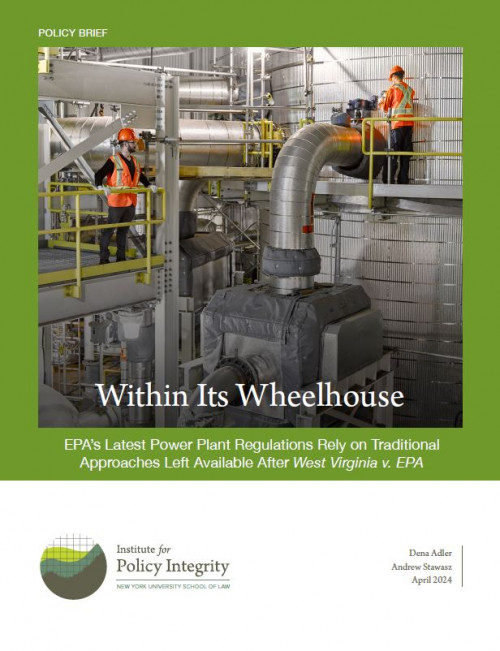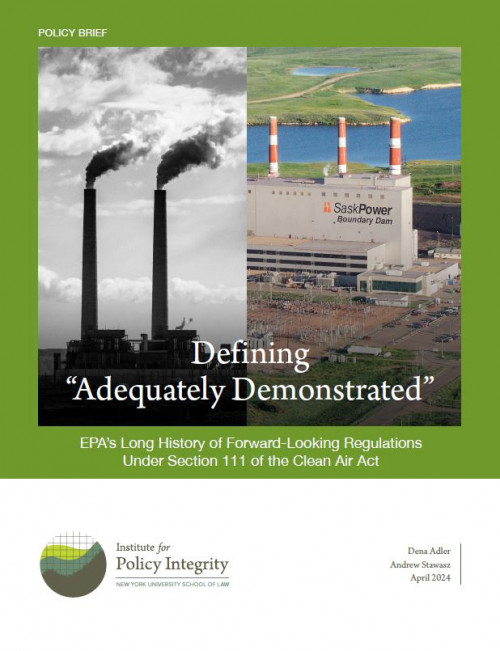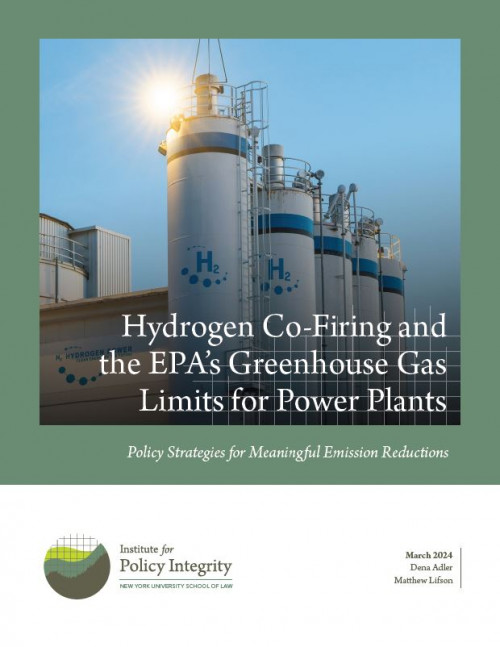-
Within Its Wheelhouse
EPA’s Latest Power Plant Regulations Rely on Traditional Approaches Left Available After West Virginia v. EPA
In May 2023, EPA proposed new limits for greenhouse gas (GHG) emissions from certain fossil-fuel-fired power plants under Section 111 of the Clean Air Act. Some critics have suggested that EPA’s new rule triggers the major questions doctrine. Under that doctrine, a court should look skeptically on the agency action in extraordinary cases involving unprecedented and transformative applications of agency authority. But the major questions doctrine is inapplicable to EPA’s use of CCS in its proposed regulations. Rather than propose a new approach that would transform its exercise of statutory authority, EPA has embraced one of its most traditional and well-established regulatory practices: setting emission limits based on pollution controls that cause a regulated source to operate more cleanly. This policy brief details why EPA’s latest proposal to limit GHG emissions from power plants fits neatly within the bounds of the legal authority left intact after West Virginia. It then explains how states and operators retain flexibility to use emission trading and averaging programs to implement EPA’s regulations.
-
Defining “Adequately Demonstrated”
EPA’s Long History of Forward-Looking Standards Under Section 111 of the Clean Air Act
In May 2023, the Environmental Protection Agency (EPA) proposed new limits for greenhouse gas (GHG) emissions from certain fossil-fuel-fired power plants under Section 111 of the Clean Air Act. Section 111 requires EPA to set limits reflecting the emission reductions achievable by applying what the agency determines to be the “best system of emission reduction” (BSER) that “has been adequately demonstrated,” and that meets certain other statutory factors. This policy brief summarizes the legal framework of Section 111 (including the legislative history and caselaw relevant to understanding its technology-forcing nature), walks through how courts have interpreted “adequately demonstrated,” reviews EPA’s past use of Section 111 to drive technology improvements, and explains why a potential Supreme Court decision that eliminates or curtails Chevron deference (a legal doctrine providing deference to reasonable agency interpretations of ambiguous statutory language) would not affect the longstanding interpretation of “adequately demonstrated.”
-
Hydrogen Co-Firing and the EPA’s Greenhouse Gas Limits for Power Plants
Policy Strategies for Meaningful Emission Reductions
In May 2023, EPA proposed new limits for carbon dioxide emissions from fossil fuel-fired power plants. The proposed rule reflects a decade of careful development from EPA and embraces an approach consistent with the Supreme Court’s ruling in West Virginia v. EPA. In order to follow that approach, EPA based the limits for certain natural gas-fired turbines on the emission reductions achievable through hydrogen co-firing (i.e., burning a blend of natural gas and hydrogen). Unlike fossil fuels, hydrogen does not release CO2 when burned, but producing hydrogen can cause significant greenhouse gas (GHG) emissions depending on how its produced. Given these potential emissions, it is important to consider what type of hydrogen a power plant will co-fire with—otherwise this approach to reducing emissions could exacerbate climate change. This report explains the role of hydrogen co-firing in EPA’s proposed rule, discusses how EPA should design its final rules to achieve the specified GHG-reduction goals, and highlights additional actions that EPA and other regulators can take to further minimize the emissions (and the resulting climate harm) from hydrogen co-firing.
-
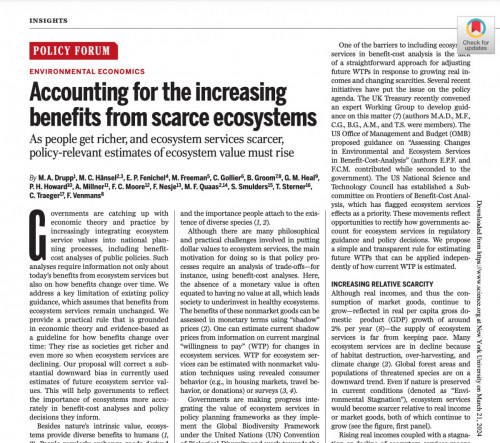
Accounting for the Increasing Benefits From Scarce Ecosystems
As people get richer, and ecosystem services scarcer, policy-relevant estimates of ecosystem value must rise
Governments are catching up with economic theory and practice by increasingly integrating ecosystem service values into national planning processes, including benefit-cost analyses of public policies. Such analyses require information not only about today’s benefits from ecosystem services but also on how benefits change over time. We address a key limitation of existing policy guidance, which assumes that benefits from ecosystem services remain unchanged. We provide a practical rule that is grounded in economic theory and evidence-based as a guideline for how benefits change over time: They rise as societies get richer and even more so when ecosystem services are declining. Our proposal will correct a substantial downward bias in currently used estimates of future ecosystem service values.
-
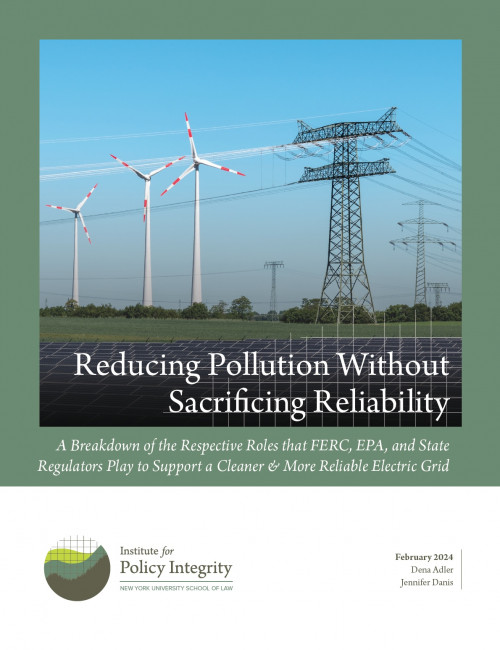
Reducing Pollution Without Sacrificing Reliability
A Breakdown of the Respective Roles that FERC, EPA, and State Regulators Play to Support a Cleaner & More Reliable Electric Grid
Multiple federal and state regulators must coordinate their efforts to ensure electric grid reliability, particularly during a period of major transition, and it is important to understand what role each of them plays. This report reviews the respective roles of FERC, RTOs/ISOs, other transmission operators, state public utility commissions, and state environmental regulators. EPA’s duty to reduce GHG emissions that endanger public health and FERC’s duty to steward grid reliability will require them to coordinate each other’s respective expertise as they work with RTOs/ISOs, state regulators, and utilities to implement EPA rules.
Viewing all publications in Climate and Energy Policy

